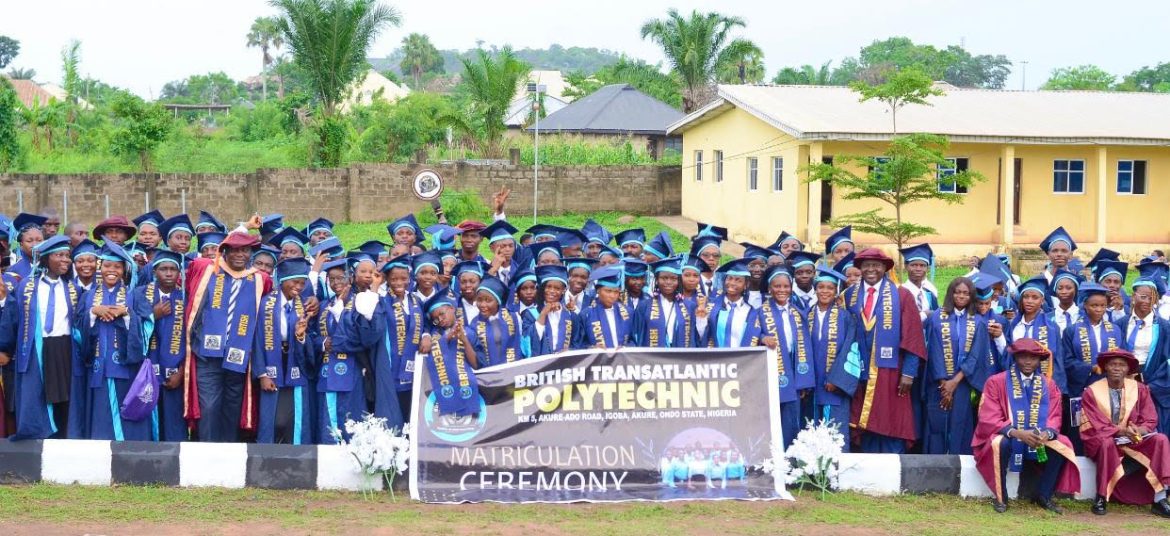434
By Tracy Moses
The Federal Government has been urged to address the longstanding disparity between university and polytechnic education in Nigeria by granting polytechnics the power to award degrees.
The Chairman of the Governing Council, British Transatlantic Polytechnic, Akure, Ondo State, Dr. Joe Obe, made the appeal on Thursday during the institution’s 2024/2025 matriculation ceremony.
Recall that the British Transatlantic Polytechnic, Akure, received its operational license from the Federal Government in January 2023. The institution currently offers full tuition fee waivers to all students, courtesy of the British Transatlantic Education Foundation, a registered educational charity in Nigeria.
Obe decried what he described as the widespread but erroneous perception of polytechnic education as inferior to university education, noting that this bias has significantly contributed to the dwindling number of technologically skilled graduates in the country.
“The notion that polytechnic education is second-class is not only misleading but detrimental to national development,” he said. “This perception has hindered the production of the technical manpower urgently needed to drive Nigeria’s economy.”
According to him, the country’s current socio-economic challenges can be mitigated by increasing the output of highly skilled graduates capable of fostering entrepreneurship and innovation aligned with the demands of a globalized economy.
He lamented that most university graduates in Nigeria remain theory-oriented and lack the practical competencies required in key sectors such as engineering, technology, and information technology.
“With the brain drain exacerbated by the ‘Japa’ wave, Nigeria is rapidly losing its already limited pool of skilled labour in critical sectors. This poses a grave threat to the country’s economic growth and stability,” he warned.
Obe emphasized that empowering polytechnics to award degrees would boost enrollment, thereby strengthening the nation’s technical workforce.
He congratulated the 120 newly matriculated students of the British Transatlantic Polytechnic, assuring them that the institution is committed to breaking barriers of discrimination through a curriculum enriched with British standards.
“Our students receive training that meets international standards, equipping them with job-readiness, employability skills, and global competitiveness,” he stated. “Graduates from this institution can confidently pursue opportunities in the UK, Europe, and the United States.”
Obe added that the polytechnic is committed to bridging the gap between education and industry needs through practical, hands-on training.



